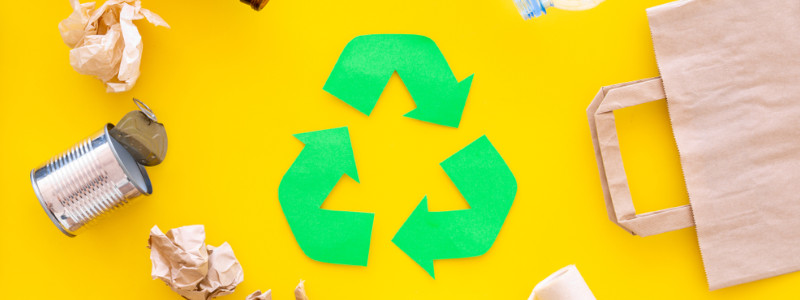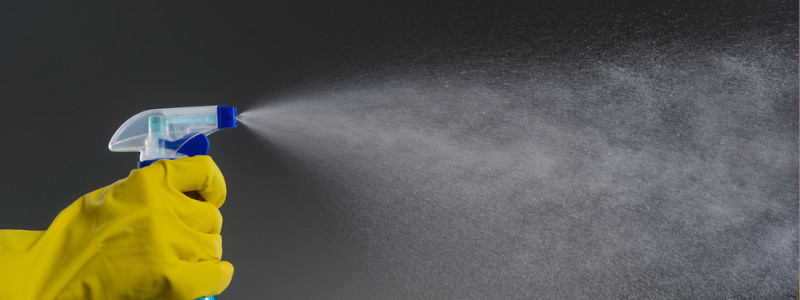
6 recycling mistakes you might be making
21st Dec, 2018
Sustainability and recycling are two major concerns of ours here at Skip Hire Network. In fact, it’s one of the main reasons why customers choose to use us when the time comes to hire their skip; we recycle as much as we possibly can from all our collected waste, and even have our own dedicated processing facilities on site. Now, we recently posted about the problem many people have regarding confusion about recycling, so we thought the logical next step would be to highlight some of the most common misconceptions about certain recycled materials.
3 types of items that almost always can’t be recycled
There is a certain school of thought amongst many of us when it comes to recycling: when unsure whether an individual item can be recycled, there are lots of people who’ll simply put it in their best guess of recycling category anyway, and cross their fingers that it will be sustainably dealt with. Personally, here at Skip Hire Network we think it’s not a bad way to go in principle – after all, it’s best to at least try! The following types of items are prime candidates for this sort of scenario, and are often put in for recycling by well-intentioned members of the public. Unfortunately, there are various reasons why they can’t be recycled.

Black and dark plastic
The particular colouring of this type of plastic is the main reason why it can’t be recycled. Essentially, the dark colouring is due to the type of pigments used, and these same pigments make it very difficult for automated recycling machines to identify and sort plastic using standard systems. Unfortunately, there’s no easy way to fix this, besides simply doing your best to avoid using black plastic products.
Dirty plastic or cardboard
Cardboard takeaway boxes are one example of this type of item, and they’re frequently put in for recycling. However, most councils will only accept plastic and cardboard that’s clean and unsoiled in order for it to be processed and turned into new products, so any type of food packaging that’s still stained with food or grease will often be put in for landfill.
Miscellaneous plastic products
You probably knew some form of this point was coming – after all, plastic is notoriously hard to process! Amongst the products that can’t be recycled are:
- Hummus pots
- Soup pots
- Yoghurt pots
- Fruit and vegetable punnets
- Takeaway containers
- Tetra packs
If you’ve not heard of a tetra pack before, chances are that you’re using them far more than you think. Essentially, they’re composite forms of food packaging, for example like the kind you’d find protecting takeaway sandwiches. The mixture of materials used often prevents them from being suitable for recycling.
3 types of items that actually can be recycled
The happy flipside to these misconceptions is that there are, in turn, several household items that can be recycled, contrary to what most people think. These include:
Empty deodorant cans, aerosols and hairspray
Though these are widely believed to be un-recyclable, in reality there are a surprising number of councils and public services who will accept them, as long as they’re completely empty. Thankfully it’s normally not tricky to tell when this is: just hold down the appropriate button, and once they’ve stopped hissing, it’s a good sign that they’re empty and that you can properly recycle them.
Empty bleach bottles and trigger-activated surface cleaners

The word ‘bleach’ obviously does not have good connotations when it comes to environmental concerns, but while the substance itself can indeed be powerfully harmful if misused, the plastic bottles themselves are actually OK for recycling in many circumstances. Again, this applies mainly if they’re completely empty (and you may want to rinse them out too, just to be sure). The same goes for surface and window cleaners.
Metal lids, kitchen foil and used (but clean) foil trays
This one needs a bit of care, to make sure you don’t fall afoul of the ‘no soiled substances’ rule that we mentioned above. But as long as there’s no food remains, fats or oils clinging to the metal surfaces, in the vast majority of cases they’re fine to be recycled and processed into new products further down the line.
Of course, the next question that may be going through your head is ‘can I put any of this in a skip?’ You might be glad to know that we’re one step ahead of you there – we’ve already published detailed guidance on what you can put in a skip, as well as an equally detailed post on what you can’t. If the posts haven’t listed the item you’re curious about, or you’ve still got any questions, you can always ask one of our friendly experts when it comes to hire your skip. What’s more, it’s never been easier to do so – just enter your postcode into our homepage, and in no time at all you’ll be looking at your very own local skip hire quote!